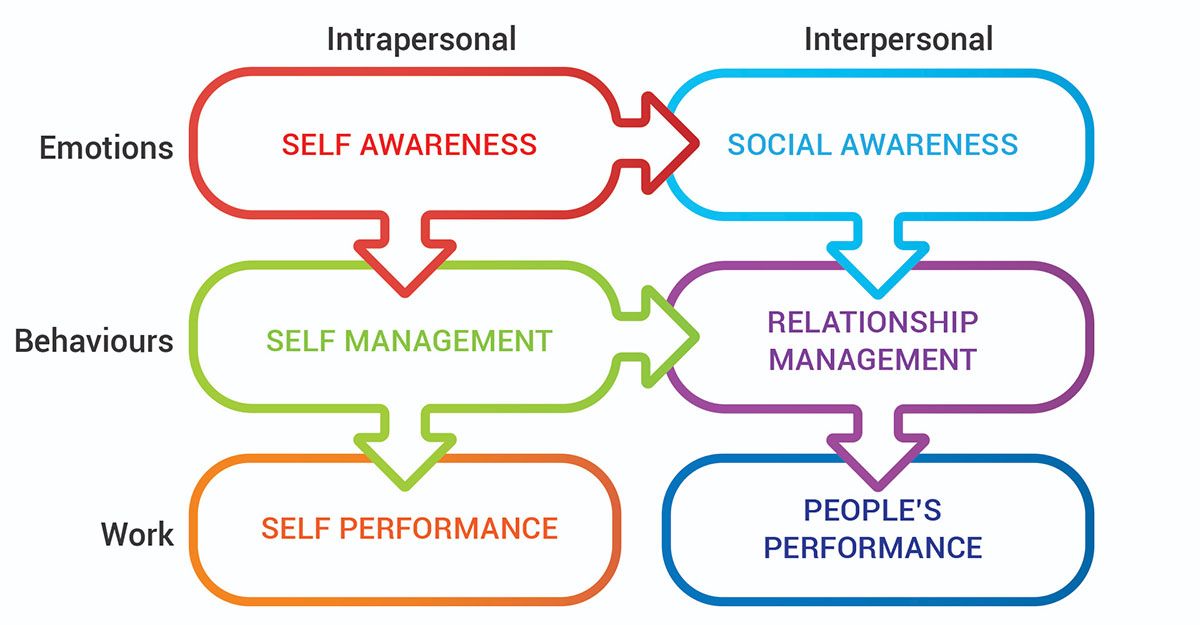How to Manage Millennials on Your Team
Soft Skills Subject: Improving Management Skills

Introducing one of our executive authors, Kate Lin (pen name). Kate has an MBA from Stanford Graduate School of Business, and over 20 years of work experience. In the last few years, she has had extensive experience managing Millennials in her operations team (aka recent college graduates), along with some new recruits in the Gen Z cohort. Here are some of her insights and tips on:
- The benefits and challenges of having Millennial team members.
- How to effectively manage Millennials – what to do and not to do.
- How to select the best Millennials to work on your team.
Some Tips for Managing Millennials and Gen Zs (Zoomers) on your Team:
Here is a part of our interview; some answers are paraphrased.
Lei: Kate, thank you so much for your time. To set some context, what is your definition of a Millennial?
Kate: Anyone born in the mid-1980’s until now — generally people right out of school, or those who’ve been out of school for a few years but are just entering the world of business.
Lei: What do you think the benefits are of having Millennials and Gen Zs on your team?
Kate: They have no real baggage. Though not all of them are completely naive, this is mostly their “first time at the rodeo”. Therefore, many do not come with soft skills around business communications, interpersonal communications, or even a personal growth mindset around acquiring these skills.
Here’s 3 great traits of the Millennial & Gen Z generations:
1. Openness
This is a little bit due to self-selection as a result of my industry (tech, tech-related services), but they’re open to trying different things to accomplish a goal. They are also eager to learn something from the process.
2. Inquisitive
They want to learn why something is the way it is, instead of just doing something robotically. They are motivated by understanding the bigger picture and knowing how their work can contribute to the overall goal.
3. Confident
I have noticed that Millennials don’t hesitate to ask questions when it comes to the learning process; this is also true of young women. The questions aren’t posed in an arrogant way, but they verbalize some of the confusion concerning corporate decisions that those of us with baggage may observe but not mention.
Lei: What are some of the key challenges involved with having Millennials & Gen Zs on your team?
Kate: Many Millennials grew up being awarded a medal for “showing up”. I have seen 4 common challenges:
1. Entitled
Many Millennials grew up always getting what they wanted, or were thought of as A++ in their parents’ eyes. Unfortunately, college doesn’t help too much with their perspective. In these cases, the workplace can be a harsh wake-up call for them. If you happen to be the first manager of a person who is like this, you have to be prepared to deliver tough information in a way that is direct, but doesn’t bruise any potentially fragile egos.
2. Difficult to Focus
Millennials tend to have a built-in attention-deficit disorder that needs to be unlearned once they get to the working world. The fact that they still have access to all their social channels at work (text messages, chat windows, news feeds for business products like Chatter or Yammer) doesn’t help. A Millennial’s phone is their lifeline — some don’t think twice about checking their phone (and sometimes texting a reply) while you’re talking to them. They may even think this is acceptable, since they see executives checking their phones while in meetings.
3. Work/Life Balance
This is an odd one for me to describe as a “challenge”. I have seen a generational return to enjoying a life that doesn’t revolve around work. Millennials don’t work if they don’t have to, and they don’t check work emails on weekends if they don’t have to. As a manager at a tech company, I find that this balance can be both rewarding and a challenge, as we may have different interpretations regarding what is expected when a problem is deemed to be a high priority.
4. Impatient and Eager
If they’re bright, they’re going to be eager and will pick up their responsibilities quickly. Since Millennials tend to do their jobs efficiently, they have more time to ruminate. As a result, they may get impatient because they’re bored, but they may not yet have the credibility or autonomy to take on more responsibilities or implement improvements. Or, due to their lack of perspective, they may wonder why executives are being stupid and not doing easy fix XYZ to improve the business, which seems like common sense from their vantage point. The could make them even more impatient or frustrated.
Lei: Wow, it sounds like Millennials and Gen Zs can be a real challenge if you have them on your team. Can you talk a little bit about what you think managers should do to effectively manage Millennials?
Kate: Yes, they can be a challenge. I also found that knowing some unique characteristics about their generation can really help a manager understand how they can leverage the benefits of this generation, while proactively addressing common challenges early on. Many Millennials are super smart and capable. With the right guidance, you can inspire them to high performance.

Here are some of my thoughts on how to effectively manage millennials:
1. Have conversations early and often about workplace expectations
Be explicit and don’t assume that the Millennial team member knows what is expected of them in a professional setting, as they grew up in a different generation. This will help you with two of the challenges I mentioned above – difficulty with focusing and a heavy emphasis on work life balance. For example, talk to them directly about why it may be okay for Executive Jane to be checking and responding to her phone in a meeting, and why it is inappropriate for them to copy the same behavior.Another example is being specific if you need them to work after hours and on the weekend. Since Millennials more highly value their work life balance than other generations, like those of Gen X or the Baby Boomers, it is not enough to just imply those things.
2. Guide them to learn how to focus.
Some Millennials have never experienced focused concentration for long periods of time versus multi-tasking. If their work requires writing, researching, or reading, you might want to propose an “interruption-free” half-day, or something where they can take some small steps in seeing the benefits of turning off the social channels in order to concentrate on some work. This may take a few attempts, as you shouldn’t expect a Millennial to fully disconnect cold turkey on Day 1 of this exercise.
3. Provide context for their work
Millennials like to know how their work fits into the bigger picture. Since that is the case, provide context to them when you delegate work. Also, try to allocate time to answer their questions. Once a Millennial understands how their work fits into the big picture, they can execute their work more efficiently, as well as raise concerns if they encounter issues.
This can also help when a Millennial is impatient about the fact hat management isn’t yet doing anything about a problem that they think is easily fixed. You can at least count on them to voice it to you; when they do, be transparent in your communication — share the larger perspective regarding why management may need to delay this decision. This way they can see that the delay is for good reasons that they were not aware of before.
4. Teach them how to think critically by having them figure out answers on their own
This generation has grown up finding answers to questions just by Googling things. You’re not a human Google for all of their internal questions. Assuming they can think critically, spend a little time working out the answer with them, but never default to, “that’ll take too long, so I’ll just tell them.” You’re hurting their soft skills and abilities to diagnose, triage, and decide on how to come up with the best answer to imperfect information
5. Give genuine positive feedback
Since this generation grew up more “entitled”, I found that positive feedback is better at motivating them to improve than the “balanced feedback” method – 3 positives, 3 negatives, and then end on a positive note. I provide positive feedback even if they’re supposed to do something as part of their job.
For example: I would say, “I appreciated how you were able to maintain control of the meeting, especially when Leslie seemed like she was heading down a tangent. Another tool you can use to keep the meeting on topic is a ‘parking lot’ – a place to keep issues that people raise in meetings that are outside the scope of the discussion, so they can be addressed separately.”
Also, make sure the feedback is genuine – they’ll be able to tell if you don’t mean it, or if you’re buttering them up so they’ll comply with a crappy task you need them to do.
For negative feedback, make sure that it’s not personal, and point out that it’s in their control to fix.
Lei: These are very helpful tips. Are there any tips on what a manager should NOT do when managing a Millennials or Gen Zs?
Kate: I can think of two immediately:
Don’t yell or be a bully
Of course, that’s generally a good managerial lesson, but some of you may be in a work environment where that’s more tolerable. I had a few yellers as managers and sports team coaches. I handled it well most of the time, and I may have a thicker skin as a result (for better or worse).
I don’t think Millennials have experienced much of this type of behavior, or if they did, their parents were quick to step in and protect them. That’s my thinking when it comes to Millennials who may be mortified the first time a sales manager bellows at them. If you’re a more animated type of manager, tread lightly or make sure they can handle your culture.
Don’t compromise your expectations.
I think Millennials are split into those that are independent and self-sufficient in general and those that need a lot of hand-holding and emotional investment – y’know, giving them that medal for showing up. The latter group can suck away time from the former group until their soft skills around emotional intelligence (EQ) begin to develop, and you may find yourself wanting to lower your goals or lower your expectations of what they can deliver, just to avoid a meltdown from a “spoiled brat”.
However, if you cave in to their tantrums, that just helps perpetuate the “medal for mediocrity” expectation with an employee that may not be that good, but thinks they are. Instead, you may want to prepare the way for dismissing this person, and spend some time finding another A-player that can fortify your team.
Lei: Thank you so much for your time. I haven’t had much experience managing Millennials yet, so this has been quite eye opening for me. Any parting thoughts?
Kate: I am glad I could help. One additional piece of advice: If you are in a position to hire and select a recent graduate to be on your team, look for people who can share stories about some sort of loss or hardship, and how they dealt with it. This will be relative, and can be based on sports or more personal matters. I look for people who haven’t had things go 100% their way, and learned from those situations. I looked for resiliency, which showed me that they weren’t afraid of working hard to get closer to a goal.

